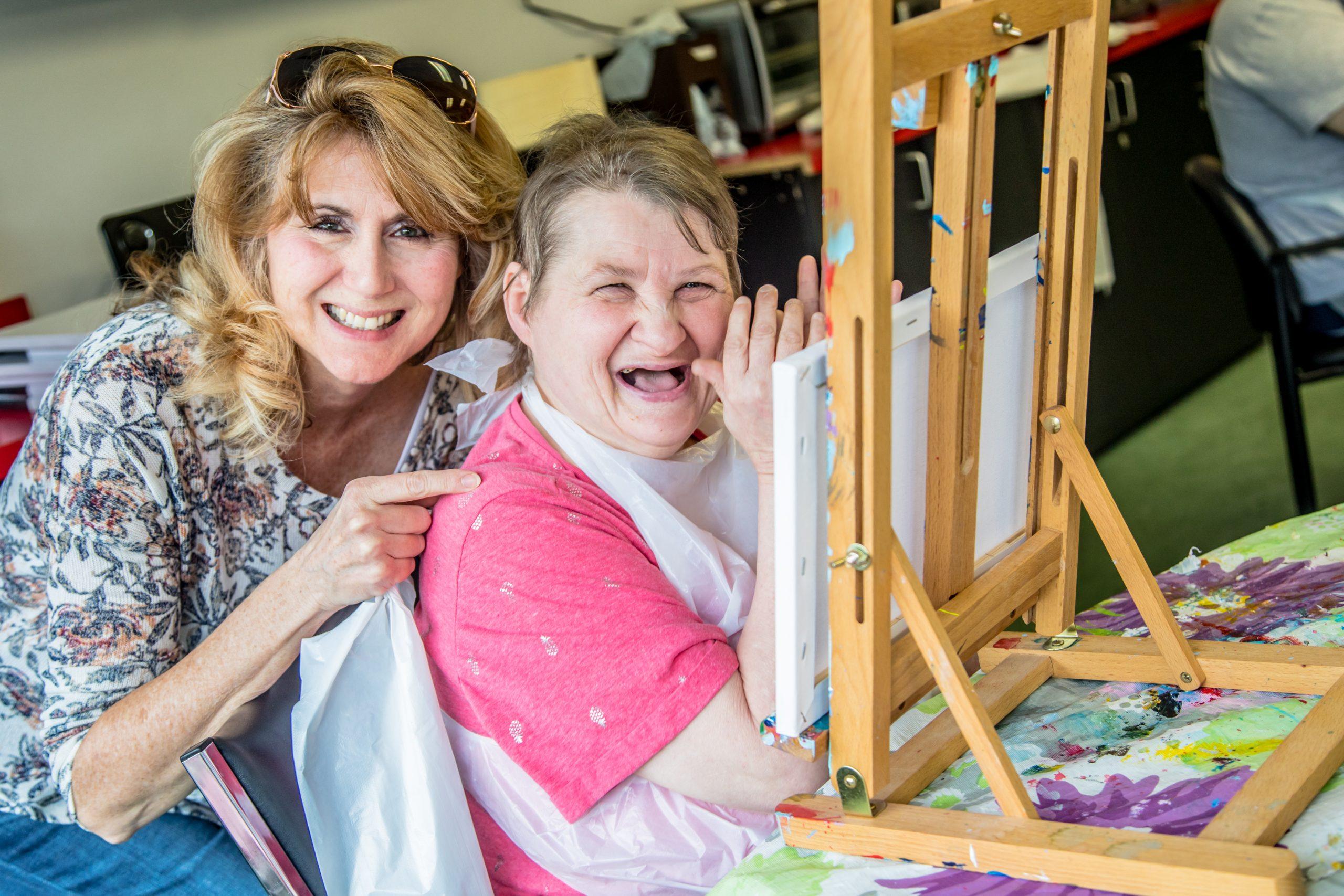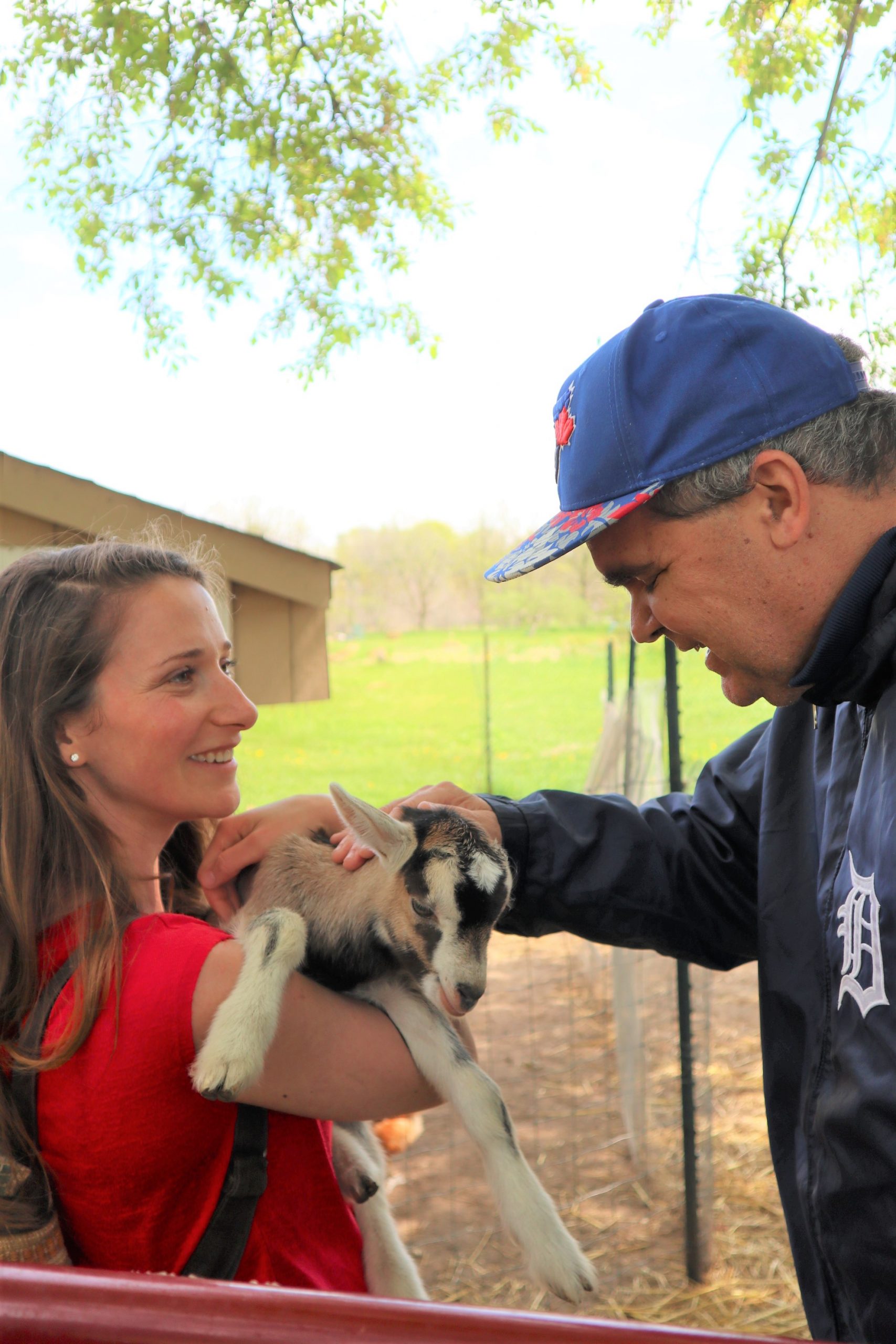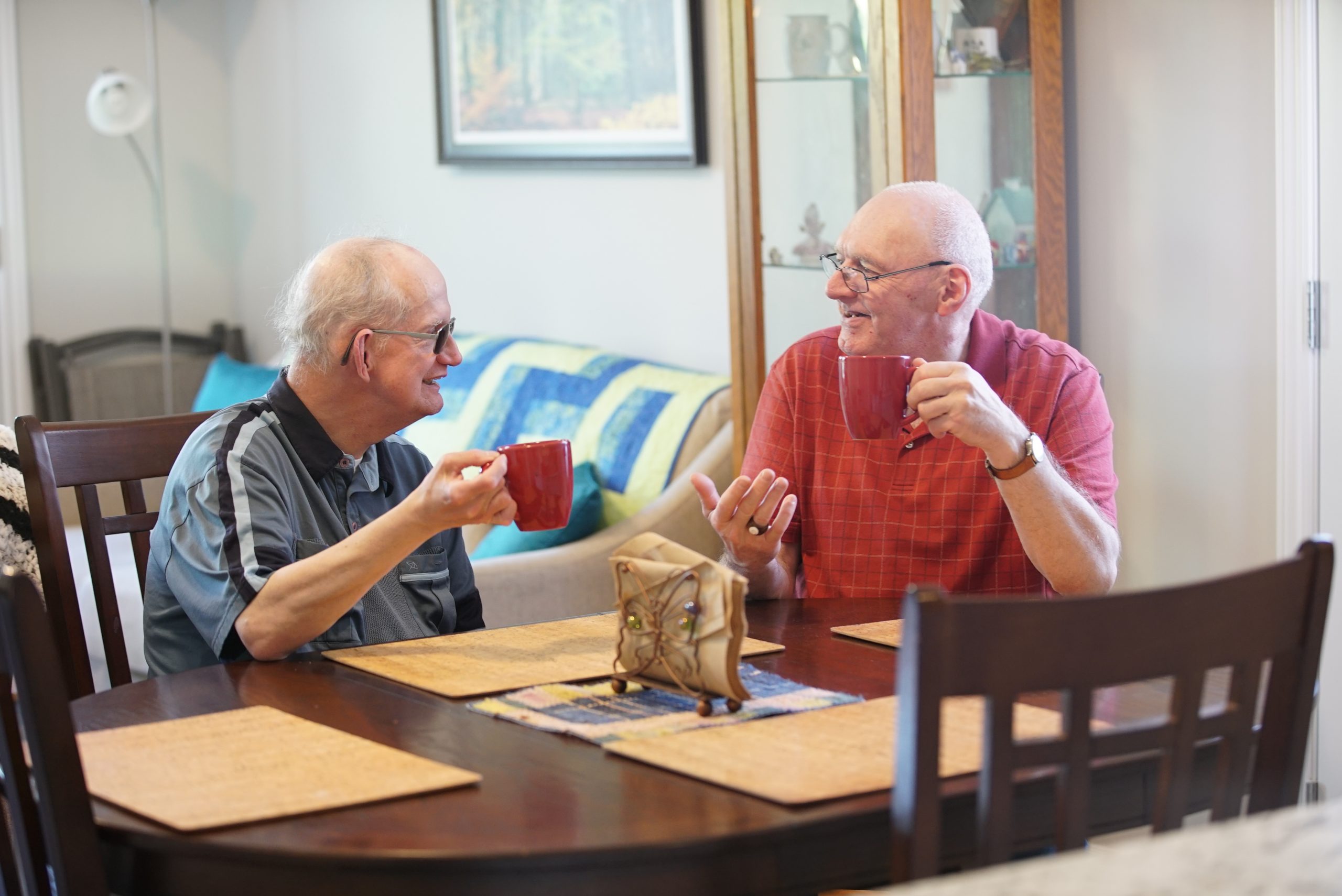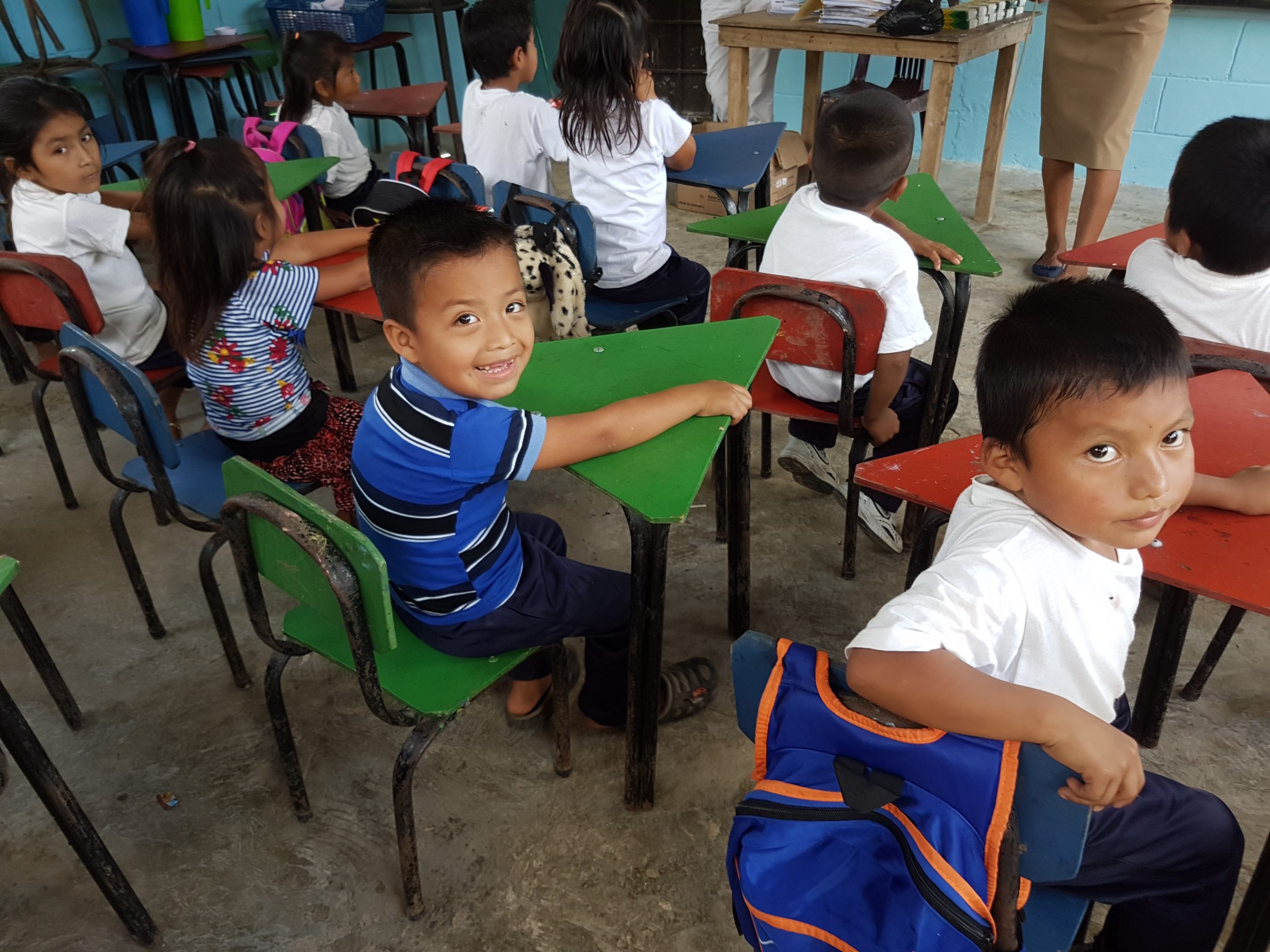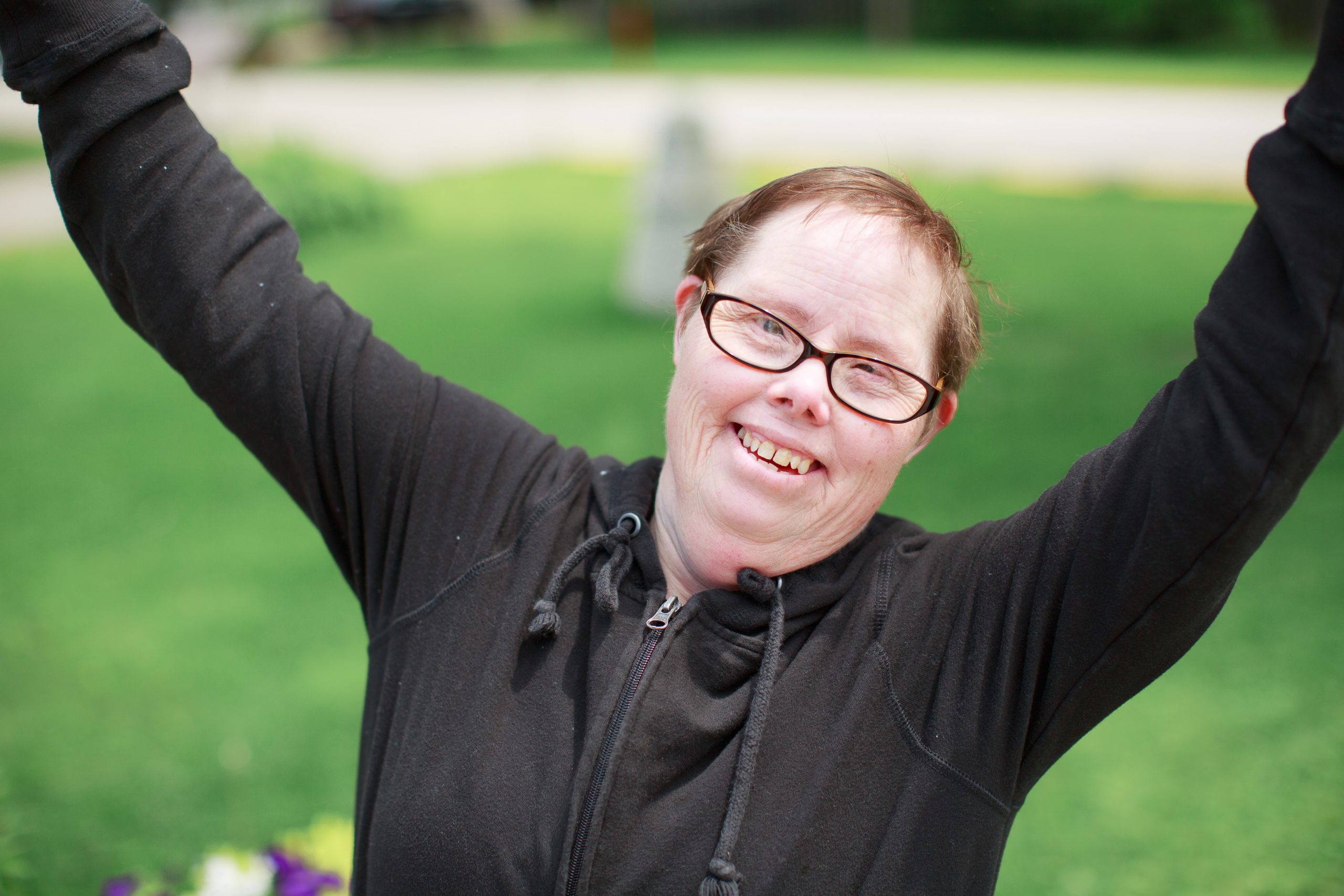Christian Horizons’ Faith Community
As its name suggests, Christian Horizons has been a Christian organization since its inception. Its founders, the Rev. Jim and Adrienne Reese, were devout members of the Baptist tradition. They envisioned and created an explicitly Christian response to the need to support people with disabilities. The organization continues to view its service to people with disabilities and their families as an expression of faith.
Though its founder was connected to a particular denomination within the Christian faith, Christian Horizons has been an interdenominational organization from its beginning. The Rev. Jim Reese was serving as a pastor at Benton Street Baptist Church in Kitchener, Ontario, when he first started the initiative, but he intentionally reached out to other churches and invited them to be involved. To this day, the organization maintains relationships with a variety of churches—eighty-four churches donated over $153,000 to Christian Horizons in 2018–19—and with organizations of different faith foundations. Its services are provided to people of all faiths as well as to those who claim no particular faith affiliation. Christian Horizons employees come from a variety of spiritual backgrounds to join its mission.
Theological Motivation
Christian Horizons believes that all people were created by God in his image and are intrinsically valued and loved by God. This belief is the foundation of the commitment to building communities in which every person is equally valued, receives equal respect, and has equal opportunity to strengthen the community with their unique gifts. Those who experience disabilities have the same inherent dignity and gifts to contribute as those who do not.
“The foundational belief in the love of God and love for others compels Christians forward in their dedication to service. This belief continues to motivate Christian Horizons in serving people who experience disabilities.” 1 1 Christian Horizons. “Our Values.” https://www.christian-horizons.org/who-we-are/values.
Christian Horizons emphasizes the centrality of God’s ministry of reconciliation. Since God has welcomed the world to himself, Christians are called to welcome others with radical hospitality. Just as the first Christians welcomed strangers into their homes, Jim and Adrienne Reese welcomed their son Steven into their family despite the many unknowns of raising a child with a disability. Christian Horizons carries this legacy forward by nurturing communities in which every member—with or without disabilities—is welcomed as someone who both receives from and contributes to the group.
“Part of the influence [of our faith] is the concept of justice, but it’s much deeper than that. It’s really about thinking about how Jesus lived his life: he had a place . . . for anybody and took the time to slow down or to adjust his posture or his activities to include people that society had often not included and missed out on.” 2 2 Interview with Janet Noel-Annable, Chief Executive Officer, Christian Horizons, September 18, 2020.
Christian Horizons is dedicated to meeting all who interact with the organization with four core values—valuing people, fostering belonging, serving others, respecting gifts—in “an atmosphere fostered by love, joy, peace, patience, kindness, goodness, and faithfulness.”
3
3
Christian Horizons. “Our Values.” https://
www.christian-horizons.org/who-we-are/values.
These core values have an explicitly biblical foundation. The organization values people, every one of whom is created in God’s image and reflects the characteristics of God himself. It fosters belonging according to the examples and instructions of the Bible, which show that healthy communities value the unique gifts of all members. It serves others after the example of Jesus Christ. Finally, it respects gifts that God has entrusted to each person to serve others. A person with a disability does not have more or less dignity than someone without a disability simply because their gifts may be different.
“The apostle Paul in Corinthians, when he’s talking about the body of Christ, says those parts of the body that ‘seem’ weaker—he doesn’t say they are weaker—are indispensable [1 Corinthians 12:22]. Whether or not he’s talking about people with disabilities, we know that society might view them as weaker or less important, but we know that our communities aren’t whole without all people.” 4 4 Interview with Mark Wallace, Executive Director of Organizational Culture and International Partners, Christian Horizons, September 18, 2020.
History and Goals
Christian Horizons began when Jim and Adrienne Reese welcomed a new son, Steven, into their family in 1963. Steven was born with a developmental disability, but Jim and Adrienne knew there was a purpose to his birth—not just that he was to be loved by his family, but also that God had a plan for Steven’s life. They did not want to send him to live in an institution, which was the common practice at the time. Unable to find support options that valued Steven as a person treasured by God and his community, the Reese family saw the need for a Christian organization that could provide holistic support services for people with developmental disabilities. Their dream of supports based on justice, respect, and the value of people with disabilities was a significant departure from the widely accepted standard of institutionalization. Jim and Adrienne joined with other families to create a new Christian ministry serving people with disabilities, the Ontario Christian Association for Exceptional Children.
“What is it that is unique about what we bring to the world around us? I truly believe it’s the same today as it was fifty-seven years ago when Steven was born: it’s that we truly believe, from a faith perspective, that God created each one of us in his image and each one of us is valued and loved by God.”
5
5
Interview with Janet Noel-Annable, Chief
Executive Officer, Christian Horizons, September 18, 2020.
The organization began as a summer-camp ministry for children. The first Camp Horizon, a two-week camp for children with developmental disabilities and their families, ran in the Haliburton Highlands in 1967. Residential services began in 1976. The organization was renamed Christian Horizons the same year; according to Jim Reese, the word “horizons” referred to the line where heavenly blessings meet earth’s needs. A second residence opened in Welland in 1977. Throughout the 1970s and ’80s, Christian Horizons grew and added new services such as job-placement programs, educational services, community-participation support, and annual family retreats.
Through person-centred support and development, the organization helps people with disabilities experience genuine belonging in society. Christian Horizons emphasizes that such belonging is possible only when people with disabilities are welcomed as full participants in their communities—contributing, not just receiving. Its mission flows out of this vision: “As an expression of Christian faith, we work together with people who experience disabilities to accomplish their goals and nurture communities where everybody belongs.” 6 6 Christian Horizons. “Our Vision and Mission.” https://www.christian-horizons.org/who-weare/mission-vision.
The organization aims not only to provide excellent support services to people with disabilities but also to influence communities. It seeks to do this by working small: helping people belong in their spaces, person by person, family by family, community by community.
Christian Horizons’ goals for advancing its mission and vision are guided by four outcomes. The organization is committed to keeping its faith foundation integral to its ministry, so that the people it supports “receive services consistent with [Christian Horizons’] core values.” To preserve and promote autonomy and independence, the organization strives to ensure that people “direct the services they receive from Christian Horizons,” rather than have their services directed by staff. The organization assists people who use its services to develop a personal plan and supports them in making their goals a reality, so that people “experience services that support their ongoing growth and development.” Finally, Christian Horizons fosters genuine belonging by working with people with disabilities and their communities to ensure that everybody’s contributions are valued. The organization’s aim is to promote a society in which “communities are welcoming of people who experience disabilities.” 7 7 Christian Horizons. “Onward: Strategic Plan 2019–2025.” https://www.christian-horizons.org/res/pub/Onward/Christian-HorizonsOnward-Strategic-Plan.pdf.
“Inclusion means that there’s a space for you, and that if you show up, there’ll be a place for you to be, but for us, belonging is way more important. Belonging means if you’re not there, you’re missed . . . someone goes looking for you and wants to bring you back.” 8 8 . Interview with Janet Noel-Annable, Chief Executive Officer, Christian Horizons, September 18, 2020.
Activities and Impact
Families, faith communities, and other informal caregivers have stepped in to provide support for people experiencing disabilities, but they usually work on an unpaid, and typically undervalued, basis. In Ontario alone, fifteen thousand people are on the wait-list for support services. Christian Horizons is helping to meet this need with its work. It offers a variety of residential supports, providing assistance through supported independent living, host-family services, group-living environments, and respite care.
Staff provide support for activities such as meal preparation, managing finances, housekeeping, and attending medical appointments, to assist people with disabilities to live independently; the level and type of support is tailored in each case to the person’s needs. Some adults with disabilities can be matched with host families who have common interests and live in a regular home environment, giving them access to the same supports as other family members. Christian Horizons is well known for its community residences, which support people whose disabilities require more intensive assistance with daily living. Residents share a home with one to five people and have twenty-four-hour access to person-centred support. The organization also offers overnight respite care, through which children and adults with disabilities can engage with peers away from home while their families have the opportunity for a short rest from the demands of meeting complex care needs.
With the support of Christian Horizons, many people who experience disabilities have been enabled to exercise greater independence. From becoming comfortable with public-transit systems to finding meaningful employment, Christian Horizons’ support services help people to take greater control of their lives and achieve their personal goals. With the organization’s assistance and encouragement, numerous Canadians with disabilities have moved from living in residences where Christian Horizons staff are present full time to living on their own or with housemates in their own apartments.
“The privilege of walking alongside people as they discover their rightful place in society is an amazing experience. Whether that’s helping somebody get their first apartment, helping them first get a job, being a part of their life when they fall in love for the first time, or go to a voting station and cast a ballot for the first time—I don’t think there’s a better way to live your life, being a part of that.” 9 9 . Interview with Janet Noel-Annable, Chief Executive Officer, Christian Horizons, September 18, 2020.
In both Ontario and Saskatchewan, the organization offers a variety of community-participation programs focusing on skills development, employment, volunteering, recreation, and other community involvement. Ontario adults with developmental disabilities have access to arts programs and social events. Since 2010, Christian Horizons has run the Wood ’n Needle, a retail outlet in Waldheim, Saskatchewan. Supported by the expertise and companionship of a stable base of volunteers, the store sells high-quality handmade items such as quilts and wood furniture, which have been produced in various community-participation programs. The organization’s main building in Saskatchewan runs two day-programs—the Craft Centre and the Living Life Skills Centre—designed to build daily living skills, offer recreation, and improve quality of life.
Christian Horizons also offers employment supports, helping people with disabilities develop their skills, apply to jobs and prepare for interviews, and succeed in their careers. The organization has partnered with several colleges across Ontario to offer introductory culinary programs, through which people with developmental disabilities can learn cooking and food-handling skills and gain on-the-job experience in the food industry. The goal is to equip students with a competitive advantage for entry-level culinary jobs, enabling them to live more independently and experience greater inclusion.
Summer camps are among Christian Horizons’ longest-running offerings. Families who live with disability can enjoy the camp experience in an accessible environment with the support of volunteers. Camp has been a life-changing experience not just for participants with disabilities but also for their families and for the volunteers. Children and adults with disabilities have the chance to experience enjoyable activities and accomplish new things. For their families, camp is a restorative week that “gives families the strength and resilience to face the rest of the year.” 10 10 . Interview with Janet Noel-Annable, Chief Executive Officer, Christian Horizons, September 18, 2020. Many volunteers have their first in-depth encounters with people with developmental disabilities at Christian Horizons camps and bring these experiences back to their home communities and into the rest of their lives. Some camp attendants later return as volunteers themselves: “We’ve had volunteer applicants who say, ‘I couldn’t find a good volunteer placement in my home community, but I really wanted to volunteer and to share my gifts. And family camp is a place where my gifts are not only welcomed but they’re supported and I’m encouraged to share what I can and do what I can.’” 11 11 Interview with Chantal Huinink, Manager of Organizational and Spiritual Life, Christian Horizons, September 18, 2020.
Christian Horizons also provides leadership and resources to other individuals, groups, and organizations on disability issues. The organization offers education and leadership-development programs for developmental-service agencies and makes information about accessibility available on its website. Staff engage with churches and other faith communities to help them welcome and include people who experience disabilities, providing resources such as videos and monthly prayer guides.
Christian Horizons is an active contributor to conversations about faith and disability. Staff have participated in conferences such as the Canadian Symposium on Theology and Disability and Princeton Seminary’s Disability and Youth Ministry Conference. In partnership with Tyndale Seminary and University, Christian Horizons helped develop the curriculum for a new Certificate in Accessible Ministry. The organization publishes a blog called the Disability and Faith Forum, an online platform offering a space for discussion about and resources on various topics at the intersection of disability and faith.
12
12
The Disability and Faith Forum. https://
disabilityandfaith.org/.
In total, Christian Horizons provided support to 2,552 people in 114 communities across Canada in 2019–20. Nearly half (1,107 people, or 43 percent) were supported through community residences. Another third (901 people, 35 percent) received community-participation, education, and employment supports. The remainder participated in supported independent living (245 people, 10 percent), family camp and retreats (156 people, 6 percent), host-family services (131 people, 5 percent), and respite services (12 people, 0.5 percent). 13 13 Data provided by Christian Horizons.
Support and Budget
Christian Horizons is a non-profit organization operating as five companies, each of which contributes to the organization’s mission under its own mandate. The organization as a whole receives most of its funding from provincial governments, residents, and donations, but the funding structure is different for each constituent company. Christian Horizons International, incorporated in 2011, is the umbrella organization over the other four companies. Christian Horizons funding comes from provincial governments—the Ministry of Children, Community and Social Services in Ontario, and the Ministry of Social Services in Saskatchewan. Domestic work not funded by the government, including leadership development and services for purchase, is carried out by Christian Horizons (Canada), incorporated separately in 1977. Christian Horizons Global delivers international services and is funded by donations from and partnerships with individuals, churches, businesses, and foundations. Xeorixs Homes, incorporated as a non-profit organization in 1985, leases homes to Christian Horizons (and to other developmental-services agencies) and is responsible for purchasing and maintaining the properties used by the organization.
Much of Christian Horizons’ work is made possible by the efforts of dedicated volunteers. Members of the organization’s board of directors serve on a volunteer basis. Volunteers keep family camps affordable for participants by offering their time and support to campers while covering their own camp expenses. Christian Horizons benefits from the service of volunteers throughout the rest of the year as well, in activities such as home visits, participation in various activities and excursions, and maintenance projects at community residences.
From 2017 to 2020, Christian Horizons’ revenue grew from $174.4 million to $188.8 million—an increase of 8.6 percent. A large majority of this revenue comes from provincial subsidies: Christian Horizons received approximately $165 million in government funding in 2019, representing 87 percent of its revenue. Most of the remaining revenue comes from residents, who contributed just over $12 million (6.5 percent of total revenue) in 2019–20. Another $3 million came from donations and grants, with the final $9 million generated by miscellaneous other sources.
The organization’s total expenses last year were $189.2 million, an increase of 7.8 percent since 2017. Its most substantial annual expense is salaries and benefits for its staff, which totalled $149.0 million (79 percent of total expenses) in 2019–20. The organization has more than 3,500 employees; while many of these are full-time positions, more than half of its employees work on a part-time or casual basis. Almost all the remaining expenses are for physical facilities ($19.0 million) and other operating costs ($18.0 million), each of which takes up about 10 percent of the annual budget. A relatively small portion is used for amortization ($3.0 million) and interest on long-term debt ($0.3 million).
Conclusion
Christian Horizons has contributed hope and belonging to the lives of people who experience disability, from families in Canada to communities around the world. Deep cracks in the disability support system, however, present ongoing challenges. Inequities abound—the typical person with a developmental disability on the Ontario Disability Support Plan receives around $1,100 per month to live on, yet the Canada Emergency Response Benefit provided $2,000 per month to those out of work because of COVID-19 shutdowns. All Canadians are entitled to health care and education, but not all Canadians with disabilities have been able to access the developmental supports they need. Governments have provided essential support and have taken steps to improve the situation, but “it’s often only through crises or pure luck that people have access to the system.” 15 15 Interview with Janet Noel-Annable, Chief Executive Officer, Christian Horizons, September 18, 2020.
The devaluation of care work and low government funding for the wages of care workers have come under intense public scrutiny in long-term-care homes, but the same problems have received far less attention in the developmental-services sector. And despite significant gains in the last few decades, discrimination against people with disabilities persists. More funding would improve the financial security of care workers, the quality of life of families who access respite care, and the well-being of people with disabilities. With stable funding for basic physical needs, developmental-services organizations may also be able to devote resources to meeting other important needs—intellectual, emotional, and spiritual—and helping their clients thrive as whole persons.
Yet while government has an important role to play as both funder and provider of some support services, it cannot meet all needs of all people. Christian Horizons insists that no individual, organization, or institution can create a society of true belonging on its own. The organization believes it is critical that individuals and non-government organizations of all stripes, including those openly motivated by faith, be able to serve in this sector of the public sphere, since different groups are uniquely equipped to meet different needs. Christian Horizons itself “does not pretend to be all things to one person, but connects them and builds relationships beyond [the organization itself] and informs the wider community.” 16 16 Interview with Chantal Huinink, Manager of Organizational and Spiritual Life, Christian Horizons, September 18, 2020. Its role is not to be the only community for those who use its services but to nurture and provide connections to diverse communities of belonging, from families and schools to churches and workplaces. Christian Horizons believes that every member of these communities—each one of us—shares in the responsibility of building communities in which everyone belongs.

